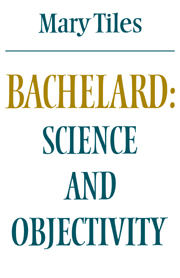Book contents
- Frontmatter
- Contents
- Editor's Introduction
- Preface (and Postscript)
- Acknowledgments
- Abbreviations
- 1 Philosophy of science: the project
- 2 Non-Cartesian epistemology and scientific objectivity
- 3 Non-Euclidean mathematics and the rationality of science
- 4 Non-Baconian science and conceptual change
- 5 The epistemology of revolutions – between realism and instrumentalism
- References
- Appendix: Biographical note
- Index
Appendix: Biographical note
Published online by Cambridge University Press: 14 November 2009
- Frontmatter
- Contents
- Editor's Introduction
- Preface (and Postscript)
- Acknowledgments
- Abbreviations
- 1 Philosophy of science: the project
- 2 Non-Cartesian epistemology and scientific objectivity
- 3 Non-Euclidean mathematics and the rationality of science
- 4 Non-Baconian science and conceptual change
- 5 The epistemology of revolutions – between realism and instrumentalism
- References
- Appendix: Biographical note
- Index
Summary
Gaston Bachelard had an unusual career, and perhaps because of this and his own forceful personality, his work has a very independent character. In style and in range of subject-matter it is academically unconventional.
Bachelard was born on 27 June 1884 in Bar-sur-Aube, in Champagne. Here he spent his childhood. From 1903 until the outbreak of the first world war he worked for the postal service, whilst also pursuing scientific studies. He received his licence in mathematics in 1912 and in 1913 had obtained a scholarship in mathematics from the Lycée Saint-Louis. But in August 1914, less than a month after marrying a school teacher from his home region, he was mobilised. For his service in the trenches he received the Croix de Guerre.
In 1919 he returned to Bar-sur-Aube to take up a teaching post at the local Collège, where he taught physics and chemistry. In the meantime he had become interested in philosophy and acquired his licence in philosophy in 1920, the same year in which his wife died, leaving him with a daughter, Suzanne. He remained in Bar-sur-Aube, continuing both his teaching and his studies in philosophy, obtaining his agrégation in 1922, and his doctorate from the Sorbonne in 1927. His doctoral dissertations (Essai sur la connaissance approchée and Etude sur l'volution d'un problème de physique: la propagation thermique dans les solides) were directed by Abel Rey and Léon Brunschvicg.
- Type
- Chapter
- Information
- Bachelard: Science and Objectivity , pp. 237 - 238Publisher: Cambridge University PressPrint publication year: 1984



